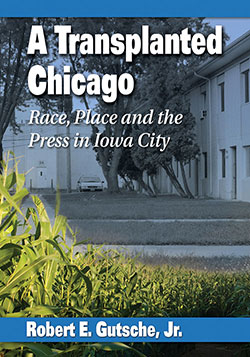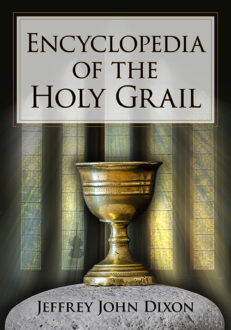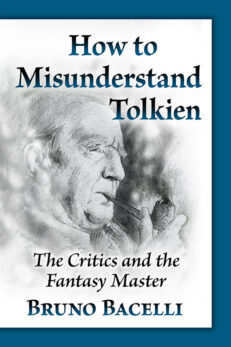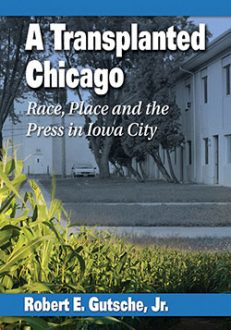A Transplanted Chicago
Race, Place and the Press in Iowa City
$29.95
In stock
About the Book
This book looks at the movement of urban American blacks into the Midwest through the experience of Iowa City, a town desperately trying to redefine itself. Pressing questions have plagued the community for decades: Why are people from Chicago coming here? Who gets to define community identity? Who makes decisions on housing, employment and education?
Instructors considering this book for use in a course may request an examination copy here.
About the Author(s)
Bibliographic Details
Robert E. Gutsche, Jr.
Format: softcover (6 x 9)
Pages: 236
Bibliographic Info: 17 photos, 17 maps, notes, bibliography, index
Copyright Date: 2014
pISBN: 978-0-7864-7367-0
eISBN: 978-1-4766-1628-5
Imprint: McFarland
Table of Contents
Table of Contents
Acknowledgments ix
Preface 1
Introduction: Welcome to the Rural Ghetto: “Southeast Side” as “Little Chicago” 17
One. How News Explains Everyday Life 37
Two. Place and Its Purpose 47
Three. Building the Ghetto: Reading News as Cultural Mortar 59
Four. News of “The Inner City”: Racializing the Southeast Side 87
Five. What’s the Southeast Side? Using Mental Mapping to Construct Place 105
Six. Whose Southeast Side? Mapping Place 117
Seven. The Subtle Power of the Press: Place and Its Ideological Function 146
Eight. School News: Press Constructions of Schools-as-Place 159
Conclusion: On the Role of News, Place and Being Human 179
Epilogue: Beyond the Southeast Side: News Place-Making Elsewhere 194
Notes 205
References 209
Index 223
Book Reviews & Awards
“Robert Gutsche blows up the myth that local newspapers only report on their communities by showing us how they actively create their communities…and not always in good ways. Methodically innovative, this book illuminates journalism’s power to shape not only our sense of place but also our shared prejudices.”—Matt Carlson, St. Louis University, author of On the Condition of Anonymity: Unnamed Sources and the Battle for Journalism; “The book is compelling journalism as well as compelling research about journalism. With careful reporting, in-depth analysis, and lyrical writing, A Transplanted Chicago offers a powerful portrait of inner-city troubles in the heartland, troubles exacerbated and constructed by the news.”—Jack Lule, Lehigh University, author of Daily News, Eternal Stories: The Mythological Role of Journalism and Globalization and Media: Global Village of Babel; “Words and facts matter. But it also matters who is writing those words and culling those facts to report. This book meticulously peels back the curtain on reporting in one Midwestern town, showing clearly that stereotypes and innuendo regularly seep into “straight” news stories, disguised as authoritative reporting. Words meant to uncover truth end up driving it further into hiding.”—Robert E. Pierre, co-author of A Day Late and a Dollar Short: High Hopes and Deferred Dreams in Obama’s ‘Post Racial’ America; “one of the first serious studies of the issue of race in Iowa City”—LittleVillageMag.com.





